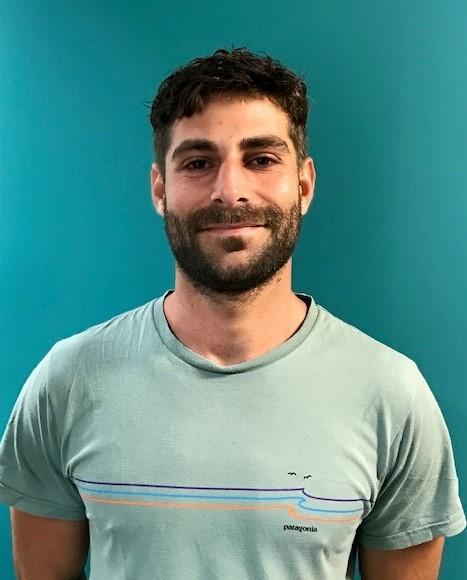Matteo Egiddi

Email address: matteo.egiddi@ivv.fraunhofer.de
Affiliation: Fraunhofer Institute for Process Engineering and Packaging IVV, Germany
Presentation:
As for most of my colleagues, my first approach to marine environmental sciences started very early on, playing at the beach in my backyard, on the seaside of Rome. The child curiosity of once found first expression into snorkelling, surfing, diving and plenty of marine activities, and subsequently in my international career development.
In 2011, I moved to South East Queensland, to obtain a Bachelor´s degree in Marine Sciences and specialised in Marine Ecology. The close proximity to pristine Australian subtropical and tropical marine habitats, from the Great Barrier Reef to kelp and mangrove forests, inspired my broad curiosity and subsequent inclination to environmental sustainability, research and development.
As a research assistant in ecology, I dealt with a number of diverse topics, spanning from ecosystem connectivity through life cycle strategies of migratory megafauna to Porifera taxonomy, ecological modelling and coral restoration. The extensive field experience I obtained made clear the necessity to decrease fishing pressure on aquatic ecosystems and supported the choice of studying Fishery and Aquaculture once I returned to Europe in 2018.
During my Master´s studies at University of Algarve, I realised the great opportunity the fast-growing aquaculture sector could give me to engage in my research ambitions. The simultaneous work I undertook in a traditional Portuguese aquaculture farm integrated an eye-opening industry involvement into my master’s programme and highlighted the necessity for technological improvements to reach sustainable circular production capacity.
It was during the subsequent traineeship at Landing Aquaculture (the Netherlands) that, through a series of international projects, I developed a highly confident practical understanding of RAS technology, specialising in the metabolomics of bioreactors in my MSc thesis. I since then gained approximately 2.5 years of industry experience as a RAS bio-engineer in the Netherlands and then in Malta.
In my PhD, I plan to apply my diverse expertise, as well as a resourceful and transferable research fervour, to study the “big picture” of the direct and indirect correlations between aquaculture feed formulas and off-flavour compounds formation, absorption and accumulation in RAS species.
ESR7: Description of the direct and indirect relationships between aquaculture feed ingredients and off-flavour compounds, and their mitigation through feeding.
Recirculating Aquaculture Systems are fundamentally designed based on the feed loads, feeds protein content and feed conversion ratios, while fish feeds represent the highest operational capital expenditure for RAS farmers. At the same time, the presence of renowned (i.e., geosmin and MIB) and other recently described (i.e., skatole, eugenol, indole, etc.) off-odour compounds in fish can drastically reduce the palatability, consumer acceptance and market demand of RAS products, driving the equation off balance.
Common off-flavour mitigation strategies require long purging time, when unfed fish lose weight and fat content in flow through tanks, greatly decreasing the recirculating water volume and losing precious market weight. Other technological strategies require intense ozone and UV purification, further increasing costs for RAS farmers. Therefore, it is essential to disclose the role of fish feed formulas to the reduce off-odorants in the feeds and in fish meat, while improving digestibility and promoting a healthy microbial flora in the animals' gut and biological filters. Such findings can promote high product standards and improve cost-effectiveness of RAS production.
The aim of this PhD project is to apply multiple sensory analyses combined to analytical methods (i.e., GC-MS/O, PTR-TOF-MS, AEDA, etc.) to determine the numerous correlations between off-odour compounds in common aquaculture feeds and their presence in RAS water and several RAS fish species. The study will explore the pathways of production, absorption and bioaccumulation of off-odour compounds. Subsequently a fish feed will be formulated, manufactured and trailed to reduce off-odour presence via feeding by employing various chemically mediated mitigation strategies. Overall, I aim to maintain feed cost-effectiveness, while improving digestibility and nutritional/welfare requirements.
